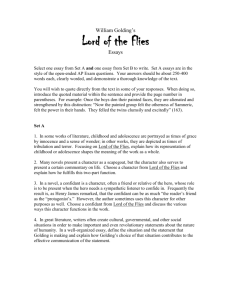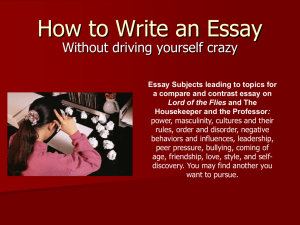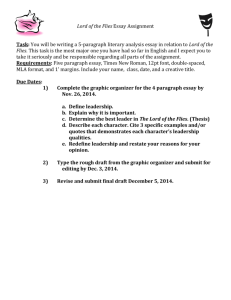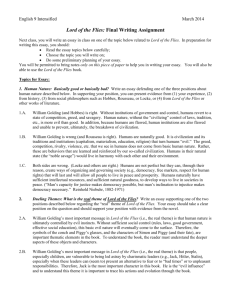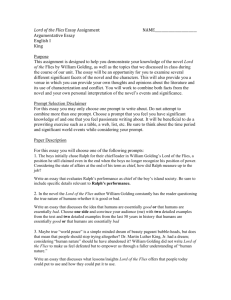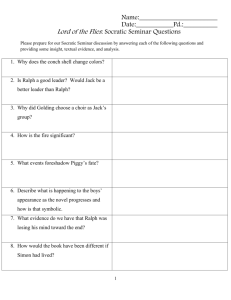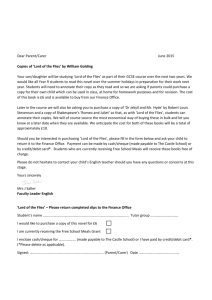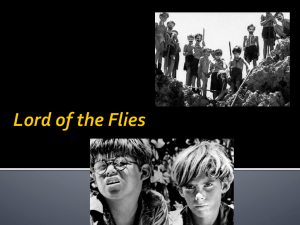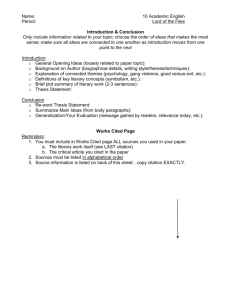Outline
advertisement
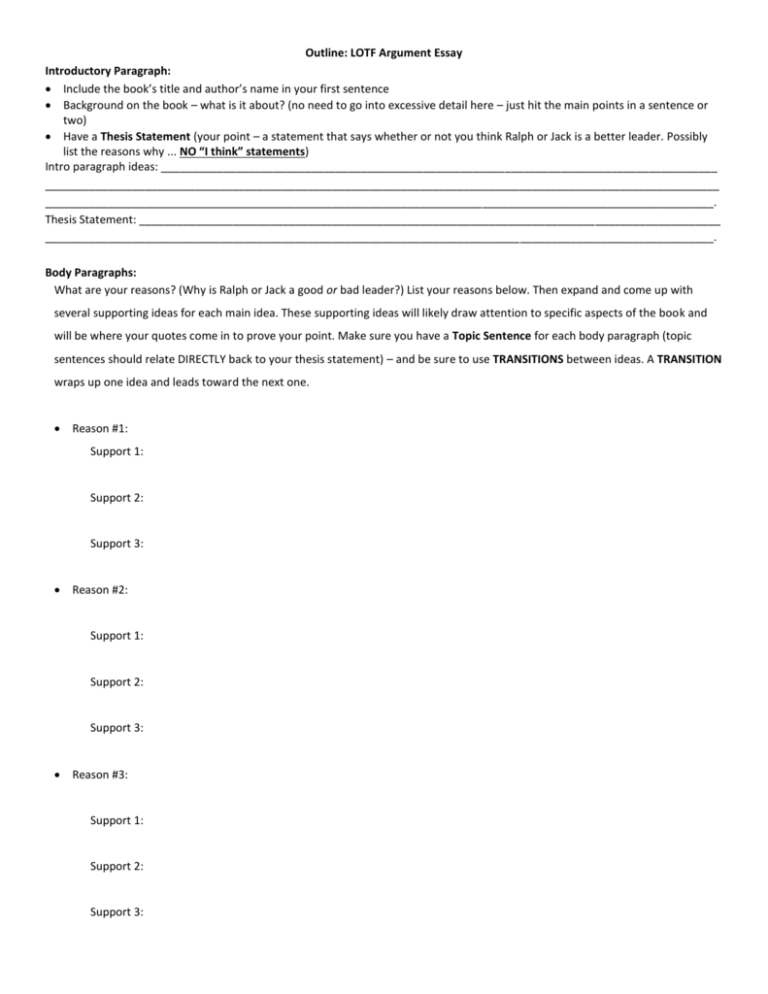
Outline: LOTF Argument Essay Introductory Paragraph: Include the book’s title and author’s name in your first sentence Background on the book – what is it about? (no need to go into excessive detail here – just hit the main points in a sentence or two) Have a Thesis Statement (your point – a statement that says whether or not you think Ralph or Jack is a better leader. Possibly list the reasons why ... NO “I think” statements) Intro paragraph ideas: _________________________________________________________________________________________ ____________________________________________________________________________________________________________ ___________________________________________________________________________________________________________. Thesis Statement: _____________________________________________________________________________________________ ___________________________________________________________________________________________________________. Body Paragraphs: What are your reasons? (Why is Ralph or Jack a good or bad leader?) List your reasons below. Then expand and come up with several supporting ideas for each main idea. These supporting ideas will likely draw attention to specific aspects of the book and will be where your quotes come in to prove your point. Make sure you have a Topic Sentence for each body paragraph (topic sentences should relate DIRECTLY back to your thesis statement) – and be sure to use TRANSITIONS between ideas. A TRANSITION wraps up one idea and leads toward the next one. Reason #1: Support 1: Support 2: Support 3: Reason #2: Support 1: Support 2: Support 3: Reason #3: Support 1: Support 2: Support 3: Reason #4: Support 1: Support 2: Support 3: Concluding Paragraph: What have you proven in your essay? Sum up your ideas by showing what you have proved in your writing. Make a statement of appeal – what’s one last way you can convince readers to agree? Finisher: Would Ralph or Jack still be a good leader today? Why? **Avoid using first person** Concluding paragraph ideas: ________________________________________________________________________________ ________________________________________________________________________________________________________ ________________________________________________________________________________________________________ _______________________________________________________________________________________________________. Works Cited (example only) Cox, C.B. "On Lord of the Flies." William Golding: Novels, 1954-67. Ed. Norman Page. London: Macmillan, 1985. 115-21. Epstein, E. L. “Notes on Lord of the Flies.” Lord of the Flies. London: Putnam, 1954. 185-190. Golding, William. Lord of the Flies. London: Putnam, 1954. Slayton, Paul. Teaching Rationale for William Golding's Lord of the Flies. Censored Books: Critical Viewpoints (1993): 351-57. Townsend, R.C. Lord of the Flies: Fool's Gold? The Journal of General Education 16.2 (1964): 153-60. For Works Cited Page: It has a header at the top, as it is considered the last page of your essay Title is centered and not underlined or italicized Whole page is double-spaced Each entry starts on a new line Entries are NOT numbered Entries are alphabetized by author’s last name All second lines and subsequent lines are indented. o Highlight your text o Go to format, paragraph o In the indentation section special drop-down box, select “Hanging” ***You should type only the source(s) that you used in your essay – You should have three sources: 1 primary source (novel) and 2 secondary sources (book & Cobb Virtual Library). EQ: How do we effectively demonstrate control of the use of the English language in work that is clearly organized, engaging and on topic? ELA10W2 Genres: The student demonstrates competence in a variety of genres: Narrative, Expository, Persuasive, and Technical. ELA10C1 Usage/Grammar: The student demonstrates understanding and control of the rules of the English language, realizing that usage involves the appropriate application of conventions and grammar in both written and spoken formats. ELAWLRL4 Writing Genres: The student employs a variety of writing genres to demonstrate a comprehensive grasp of significant ideas in selected literary works. The student composes essays, narratives, poems, or technical documents. ELA10W1 Organizational Structure: The student produces writing that establishes an appropriate organizational structure, sets a context and engages the reader, maintains a coherent focus throughout, and signals closure.

